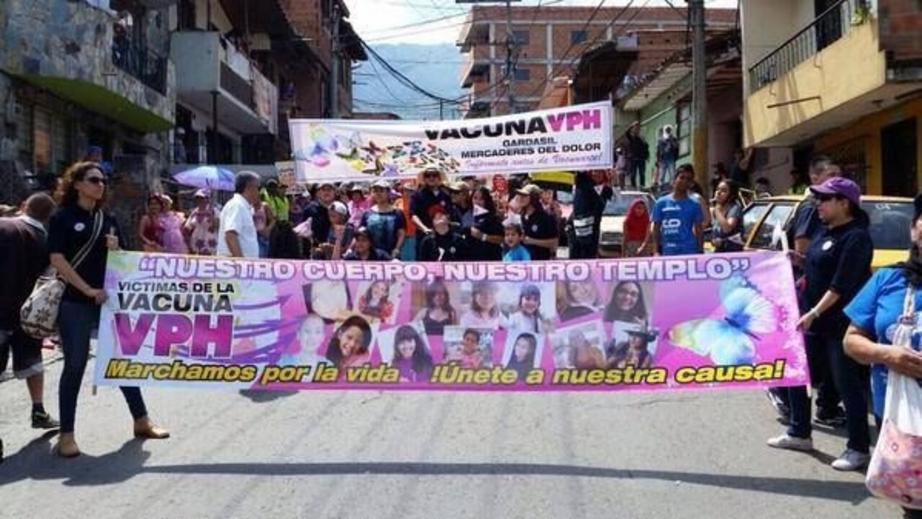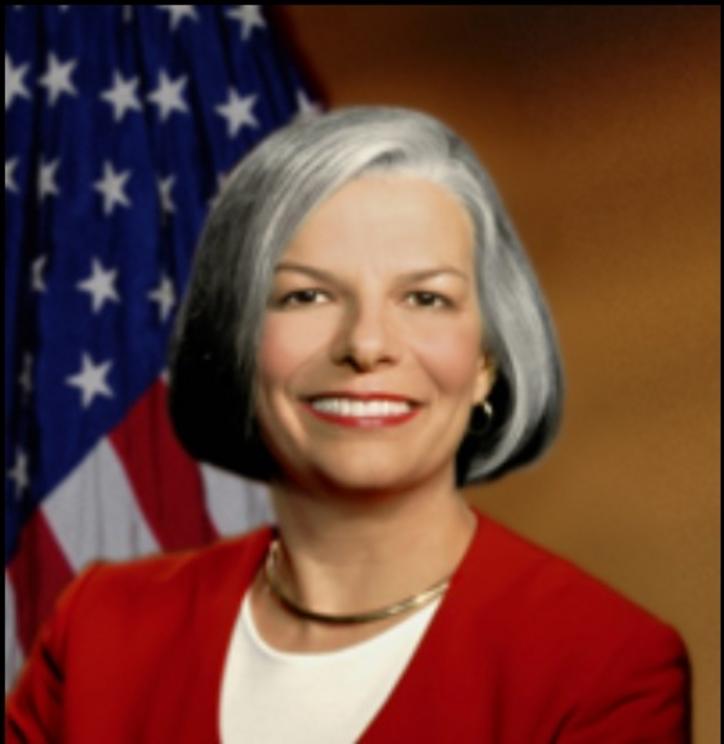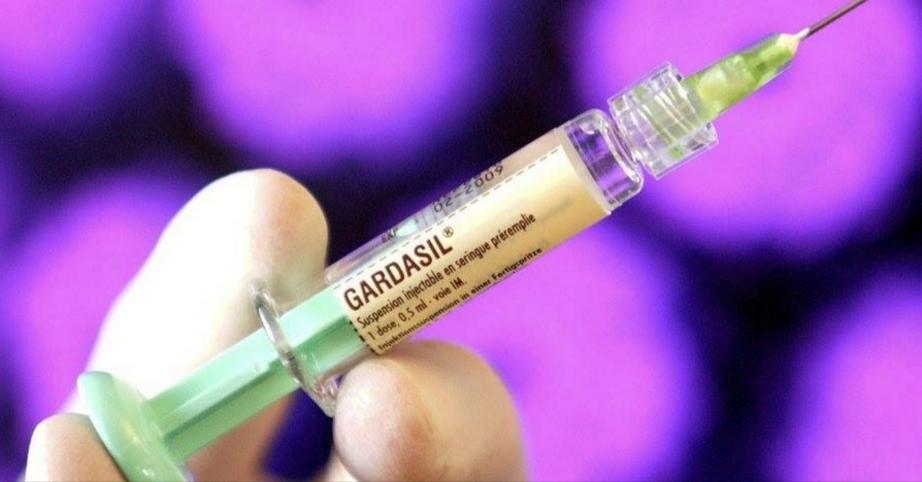International study: an honest look at the statistics shows that the HPV vaccine is not safe
A new study was published earlier this month (July 2017) in the journal Clinical Rheumatology looking at serious adverse events after HPV vaccination. The title of the study is: Serious adverse events after HPV vaccination: a critical review of randomized trials and post-marketing case series.
This is an international peer-reviewed journal that has been around since 1945. It is the “Journal of the International League of Associations for Rheumatology,” and is the official journal of the Belgian Rheumatology Society.
The study was conducted by doctors from the Rheumatology Department and the Immunology Department at the National Institute of Cardiology in Mexico City.
The results of their study found:
- The lack of inert placebo in the vast majority of prelicensure HPV vaccine randomized studies
- Large randomized trials disclosed significantly more severe adverse events in the tested HPV vaccine cohort
- Pooled safety analysis found more post-immunization symptoms in bivalent HPV vaccine vs. hepatitis A vaccine
- Post-marketing HPV vaccine adverse events case series describe similar cluster of symptoms than those reported in pre-clinical trials
- The European Medicines Agency report on HPV vaccine safety looked at specific diagnoses and not at symptoms clusters
- In-depth analysis of some supportive post-marketing HPV vaccine safety studies discloses disquieting findings
The study found the statistics regarding the new Gardasil 9 particularly troubling, as the statistics suggest that severe harm is suffered every 140 injections, and the number needed to vaccinate in order to see any perceived benefits to the vaccine is 1757.
Such a critical study of any vaccine would probably never get published in the United States, as it is considered professional suicide to criticize the extremist position that all vaccines are safe and effective, and that the “science is settled” regarding vaccines.
This extremist position stifles any legitimate concerns or criticisms, even in academia, and allows multi-billion dollar pharmaceutical companies to work in conjunction with the government to mandate vaccines for the entire population.
The United States is the only country in the world where pharmaceutical companies are not legally liable for defective vaccine products, therefore the only thing potentially stopping them from flooding the market with more vaccine products is negative vaccine information.
With the pharmaceutical industry being one of the largest purchasers of corporate media advertisement, negative vaccine information is routinely suppressed in the corporate “mainstream” media.
The Worldwide HPV Vaccine Controversy
 Protests over the Gardasil HPV vaccine in the streets of Colombia.
Protests over the Gardasil HPV vaccine in the streets of Colombia.
In the introduction to the study, the Mexican doctors admit that internationally, “there is an ongoing debate on HPV vaccine safety.”
There is an ongoing debate on HPV vaccine safety. On the one hand, international regulatory health agencies have endorsed HPV vaccine security.
On the other hand, clinicians from different parts of the world have independently described a disabling multisystem illness occurring rarely after HPV immunization.
In response to adverse events reports, Japan’s Health Ministry suspended HPV immunization program in 2013.
Internet-based social media have also published dramatic cases of HPV vaccine adverse events. This information led to decreased vaccine uptake in several countries.
HPV vaccine is given to healthy youngsters; therefore, of outmost importance is the continuous safety surveillance.
This debate, however, is not allowed in the U.S., and when it is published, there is tremendous pressure to suppress it.
Just ask Katie Couric, who in 2013 dared to cover both sides of the Gardasil vaccine debate, and was subsequently viciously attacked by the corporate media.
So severe were the attacks that she was forced to issue a public apology, and bring Dr. Anne Schuchat, Assistant Surgeon General and Director of the CDC’s National Center for Immunization and Respiratory Diseases, on to her show to explain how safe the Gardasil vaccine is.
Her show was canceled for the next season, and one could argue that her career has never been the same.
Outside of the U.S. however, negative publicity regarding the side effects of the HPV vaccines are plentiful. In Colombia, so severe are the deaths and injuries due to the HPV vaccine that parents have protested by demonstrating in the streets, and shutting down schools.
Negative press regarding the HPV vaccine can be found in France (Merck’s Former Doctor Predicts that Gardasil will Become the Greatest Medical Scandal of All Time), Spain, Japan, Ireland, Denmark, the UK, India, and many others.
Negative Gardasil Information Censorship in the United States
 Former CDC Director Julie Gerberding sold 38,368 shares of Merck Stock for $2.3 Million.
Former CDC Director Julie Gerberding sold 38,368 shares of Merck Stock for $2.3 Million.
With a little bit of research, it is easy to see why negative information about Gardasil is censored in the U.S. The U.S. government has a huge conflict of interest, as it profits from the sale of vaccines, and Gardasil in particular.
The U.S. Centers for Disease Control (CDC) is tasked with vaccine safety, and yet it is also the largest purchaser of vaccines, spending over $4 billion annually to purchase vaccines.
Julie Gerberding was in charge of the CDC from 2002 to 2009, which includes the years the FDA approved the Merck Gardasil vaccine.
Soon after she took over the CDC, she reportedly completely overhauled the agency’s organizational structure, and many of the CDC’s senior scientists and leaders either left or announced plans to leave. Some have claimed that almost all of the replacements Julie Gerberding appointed had ties to the vaccine industry.
Gerberding resigned from the CDC on January 20, 2009, and took over as the president of Merck’s Vaccine division, a 5 billion dollar a year operation, and the supplier of the largest number of vaccines the CDC recommends (article here).
It was reported in 2015 that Dr. Gerberding, now the executive vice president of pharmaceutical giant Merck, sold 38,368 of her shares in Merck stock for $2,340,064.32. She still holds 31,985 shares of the company’s stock, valued at about $2 million.
Besides examples like this showing a clear conflict of interest between government agencies tasked with overseeing public health and vaccine safety and pharmaceutical companies, the National Institute of Health also holds patents on vaccines such as Gardasil, and earns royalties from the sale of vaccines.
Dr. Eric Suba tried to use the Freedom of Information Act to find out how much money the National Institute of Health (NIH) earned from the sale of Gardasil, but they refused to report the amount of revenue the government earns from this vaccine (although not denying they do earn royalties).
So while negative publicity on the serious side effects of the HPV vaccine are quite well known outside the U.S., where sales of the vaccine are plummeting, due to censorship of this information in the corporate-sponsored “mainstream” media, sales of the Gardasil vaccine continue to skyrocket in the U.S.
In 2017, Gardasil has so far increased sales by 41% to $532 million and has easily surpassed analyst estimates of $361 million, according to Barclays. (Source.)
Skewed Statistics and Studies Still Show the HPV Vaccine is not Safe
The Mexican study just published in the journal Clinical Rheumatology is amazing in the sense that even though statistics and studies have clearly been biased to favor the HPV vaccine, they still suggest that the HPV vaccine is not safe.
Some highlights from the study:
Proper placebos not used in pre-market trials. Instead of an inert placebo, aluminum adjuvants were used.
The overwhelming majority of randomized HPV vaccine trials did not use inert placebo. They used aluminum containing placebo or other aluminum-adjuvanted vaccines.
For clinical studies, a placebo is defined as a “pharmaceutically inert” substance. This definition cannot be applied to an adjuvant substance.
Aluminum adjuvant mechanism of action remains poorly understood and its safety has been questioned. Aluminum adjuvants are known to stimulate TH2 immune response, activate dendritic cells, and activate NLRP3 inflammasome.
Large randomized trials disclosed significantly more severe adverse events in the tested HPV vaccine cohort.
In randomized double-blind trials, confounding variables are canceled out minimizing the influence of external factors on the results.
The two relatively small randomized trials testing HPV vaccine against true inert saline placebo revealed a tendency to have more adverse events in the vaccine group.
Two of the largest HPV vaccine randomized trials showed significantly more severe adverse events in the investigated vaccine arm of the study: Compared to aluminum placebo, bivalent HPV immunization was accompanied by significantly more vaccine-related general solicited symptoms during the 7-day post-vaccination period and a statistically significant four-fold increase in death rate.
The unquestionable statistical results derived from two of the largest HPV vaccine randomized trials must take preeminence over the investigators’ judgment ascribing the disproportionate severe adverse events and excessive death rate to external factors.
Post-marketing HPV vaccine adverse events case series describe similar cluster of symptoms than those reported in pre-clinical trials.
Both pre-licensure randomized trials and postmarketing-independent reports describe similar cluster of adverse events symptoms, namely, headache, fatigue, dizziness, musculoskeletal pain, and gastrointestinal symptoms among others.
In the postmarketing studies, this cluster of symptoms was labeled with different diagnoses such as complex regional pain syndrome, chronic fatigue syndrome, fibromyalgia, or postural orthostatic tachycardia syndrome. When looking at these diagnoses separately, HPV vaccine safety signals may be diluted.
This possible post-marketing HPV vaccine adverse reaction under-recognition is reinforced by the recent WHO VigiBase report.
In-depth analysis of some supportive post-marketing HPV vaccine safety studies discloses disquieting findings.
HPV vaccine post-marketing safety studies done in Valencia, Spain, and Alberta, Canada, endorsed HPV vaccine safety.
Nevertheless, these investigations contain disquieting findings. It seems perilous to blame “Bad press” for the 10 times higher than expected HPV vaccine adverse events notification by Valencian doctors and nurses. Similarly intriguing is the description of 10% of HPV-vaccinated healthy Canadian girls needing to visit a hospital emergency department within 42 days following HPV immunization.
The researchers conclusions:
Scrutiny of two of the largest randomized trials unveiled significantly more serious adverse events in the investigated HPV vaccine arm of the study.
Compared to the 4-valent dose, 9-valent HPV vaccine had significantly more serious adverse events. Considering this statistical difference, the reported 0% incidence of vaccine-related serious adverse events is probably an under-estimation.
Nine-valent HPV vaccine has a worrisome number needed to vaccinate/number needed to harm quotient. Nine-valent vs. 4-valent HPV vaccine local and systemic adverse events disparities raise the possibility of a dose-dependent untoward effect.
Compared to aluminum placebo, the group of individuals receiving the bivalent HPV vaccine had more deaths on follow-up. Pre-clinical randomized trials and independent post-marketing case series describe similar post-HPV immunization symptom clusters.
These findings raise further doubt on HPV vaccine safety.
For full references please use source link below.

